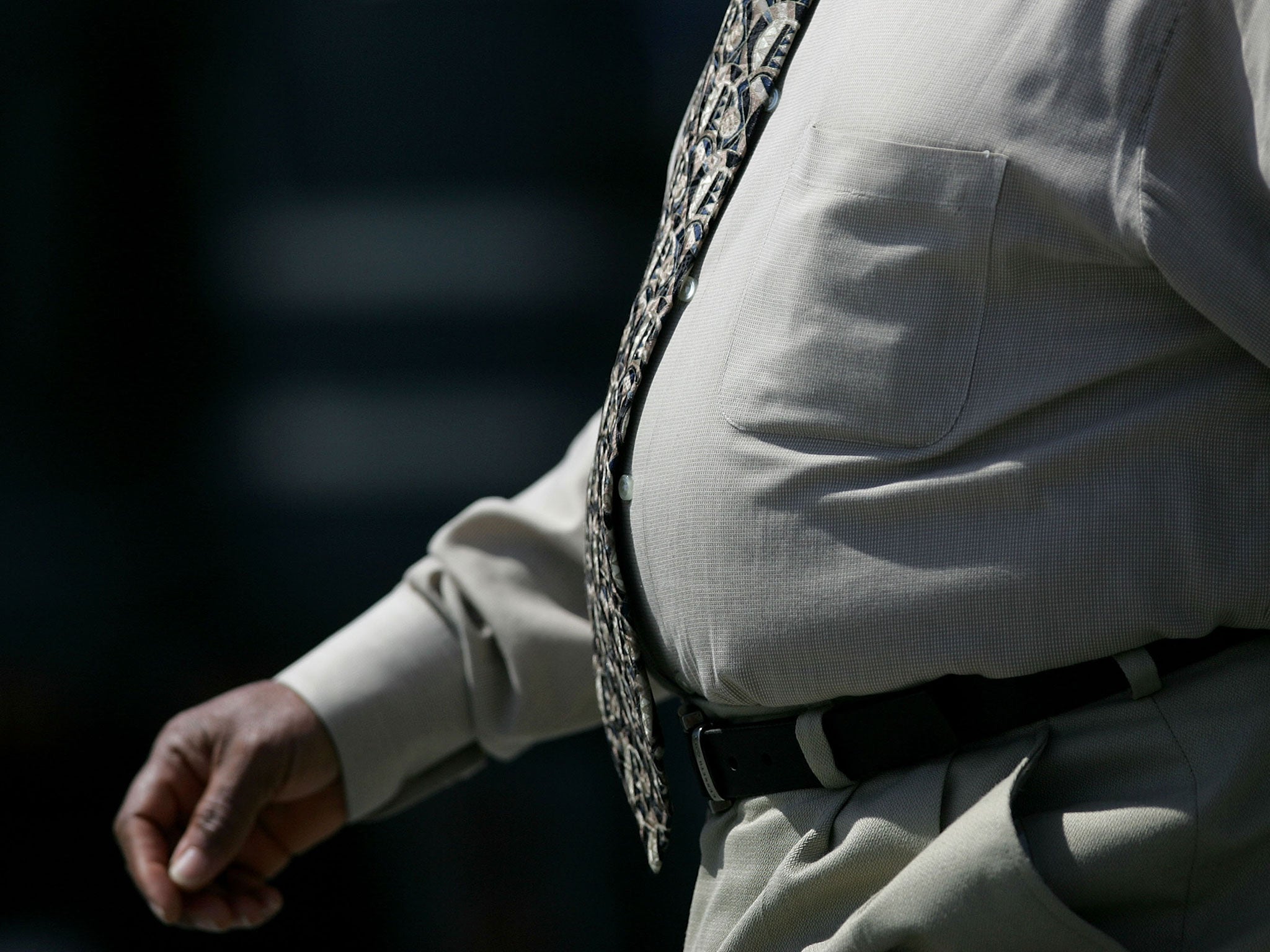Why do we get fat? The reason we put on weight
Your body has clever systems to know how much to eat - but it can't compete with consistent over-eating

Your support helps us to tell the story
From reproductive rights to climate change to Big Tech, The Independent is on the ground when the story is developing. Whether it's investigating the financials of Elon Musk's pro-Trump PAC or producing our latest documentary, 'The A Word', which shines a light on the American women fighting for reproductive rights, we know how important it is to parse out the facts from the messaging.
At such a critical moment in US history, we need reporters on the ground. Your donation allows us to keep sending journalists to speak to both sides of the story.
The Independent is trusted by Americans across the entire political spectrum. And unlike many other quality news outlets, we choose not to lock Americans out of our reporting and analysis with paywalls. We believe quality journalism should be available to everyone, paid for by those who can afford it.
Your support makes all the difference.As the obesity epidemic grows, it is important to understand just what causes us to gain weight.
Since 1980, worldwide obesity has more than doubled, and over 1.9 billion adults were overweight in 2014, according to the World Health Organisation.
The recommended daily calorie intake for an average adult individual is set between 2000Kcal for a woman and 2,500Kcals for a man, while fat intake is set between 70 and 90 grams. The body needs this level of calories in order to function at maximum efficiency.
However, if we consume more than is needed to run our body, the body stores these extra calories as fat. These fat stores can function as a reserve if we don’t eat enough, but if someone consistently over-eats, they will become overweight or obese as the body continues to store the excess calories.
In order to know how much food to eat, the human body needs a way of assessing how much energy it has in storage. Leptin, also known as the ‘fat hormone’, essentially acts as a fuel gauge.
It is made by fat cells and tells the brain how much fat the body contains, and whether the supplies are increasing, or being used up.
Food intake is regulated by a small region of the brain called the hypothalamus. When fat stores run low, and leptin levels drop, the hypothalamus stimulates appetite in an attempt to increase food intake and regain lost energy stores. When leptin levels are high, appetite is suppressed, reducing food intake and encouraging the body to burn up extra fuel.
It was originally thought that leptin could be used as a treatment for obesity. However, although it is an important regulator of food intake, appetite is affected by a variety of things, from how full the stomach is to an individual’s emotional state or food preferences.
For this reason, it is easy to override the leptin message and gain weight even when fat stores are sufficient.
How it Works Magazine, issue 79 is out now. @HowItWorksmag
Join our commenting forum
Join thought-provoking conversations, follow other Independent readers and see their replies
Comments